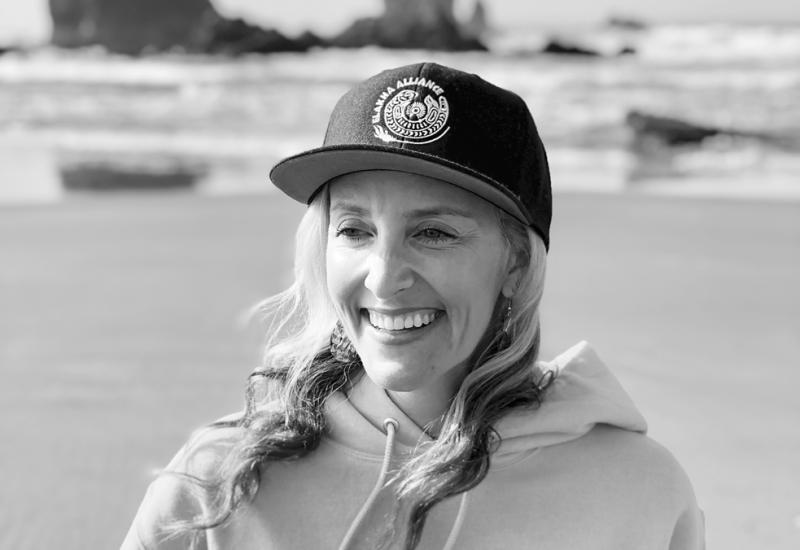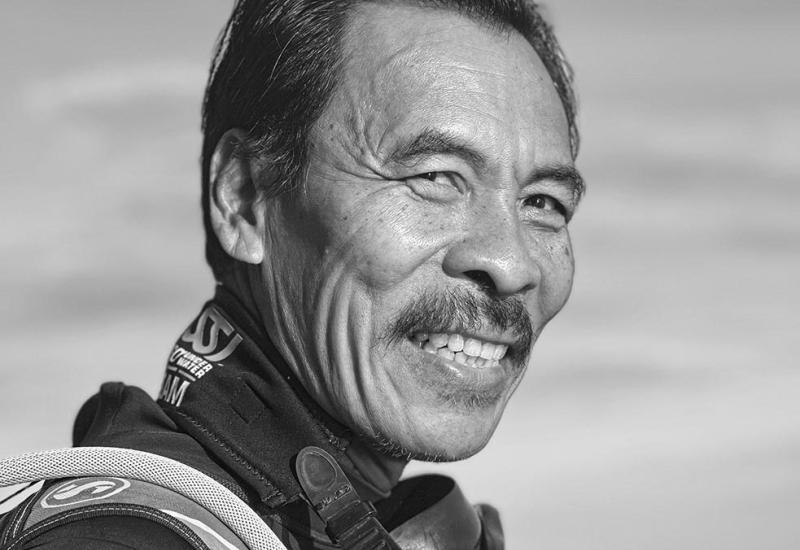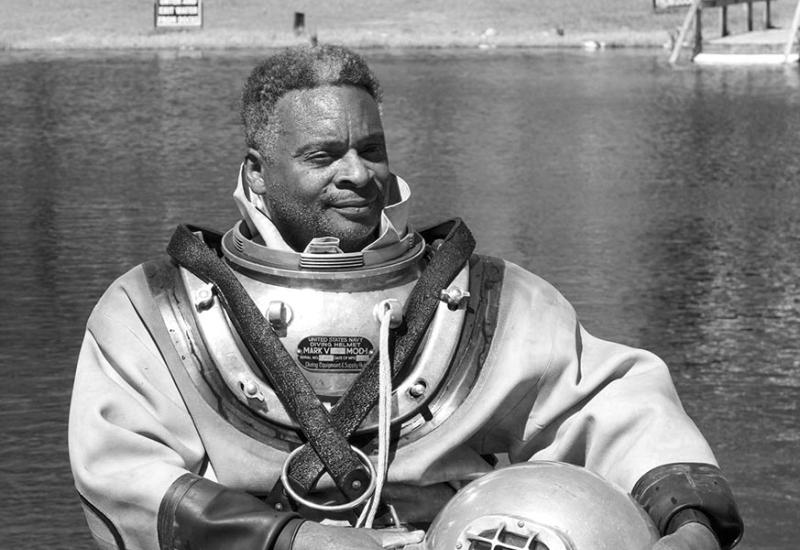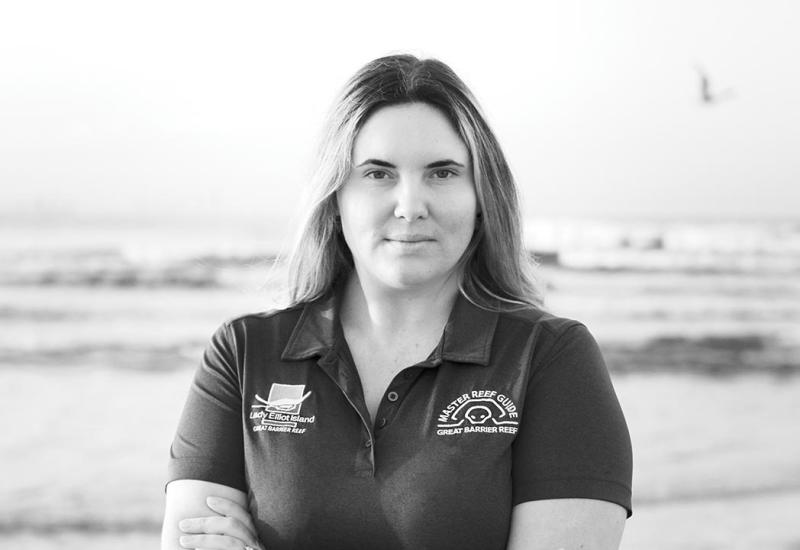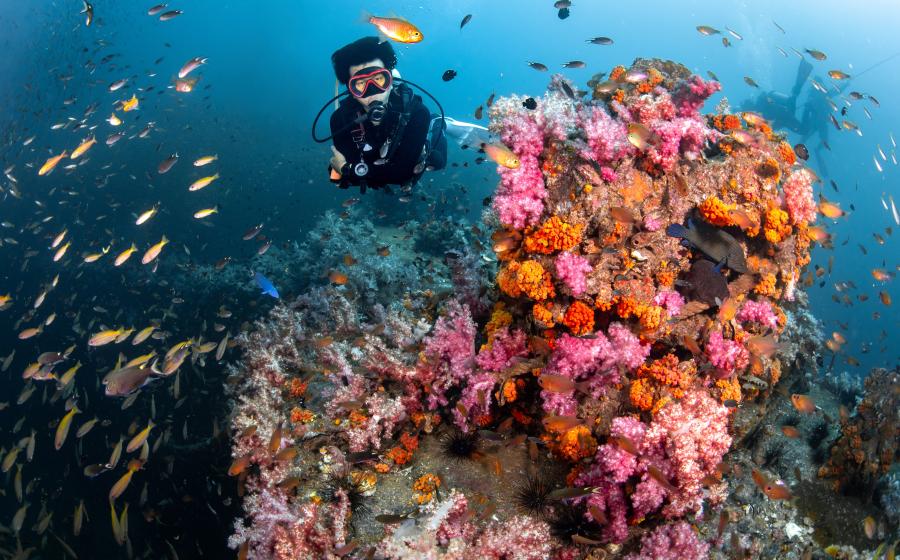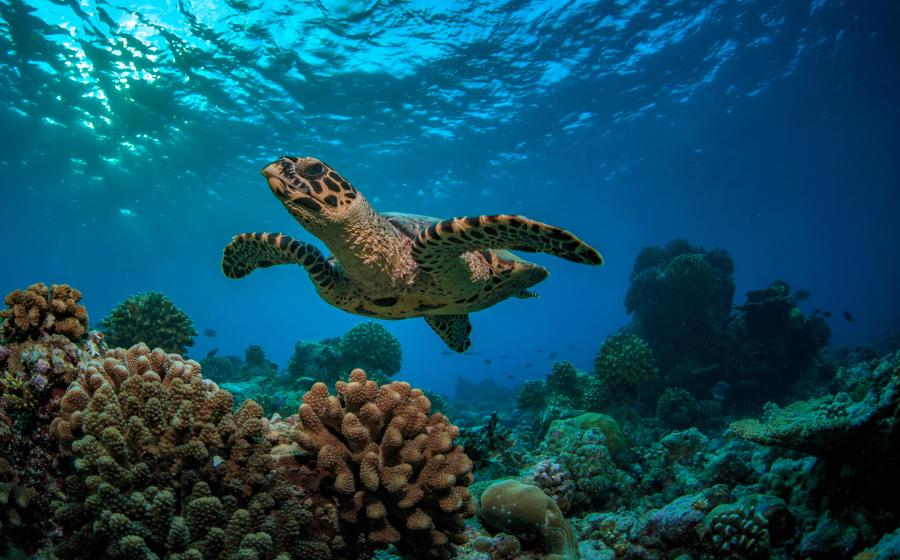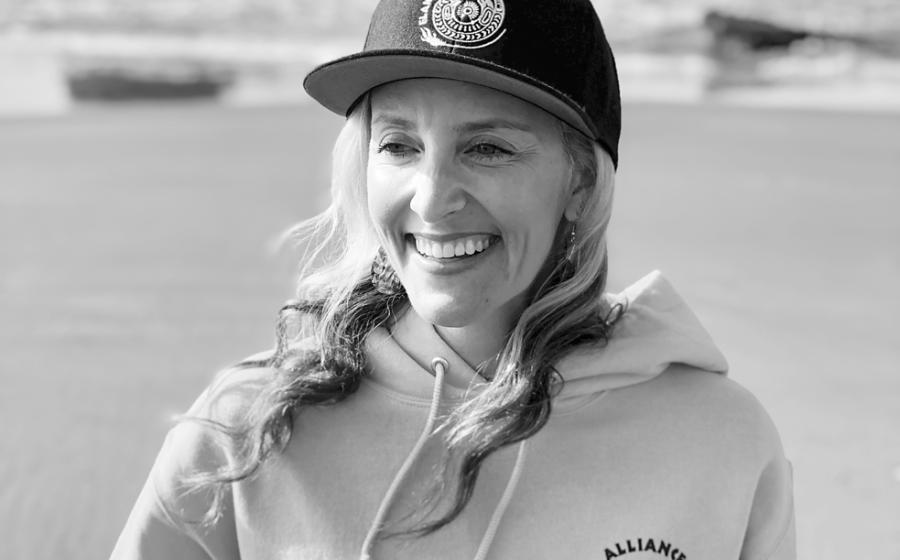Marine Scientist Callum Roberts Named August Sea Hero
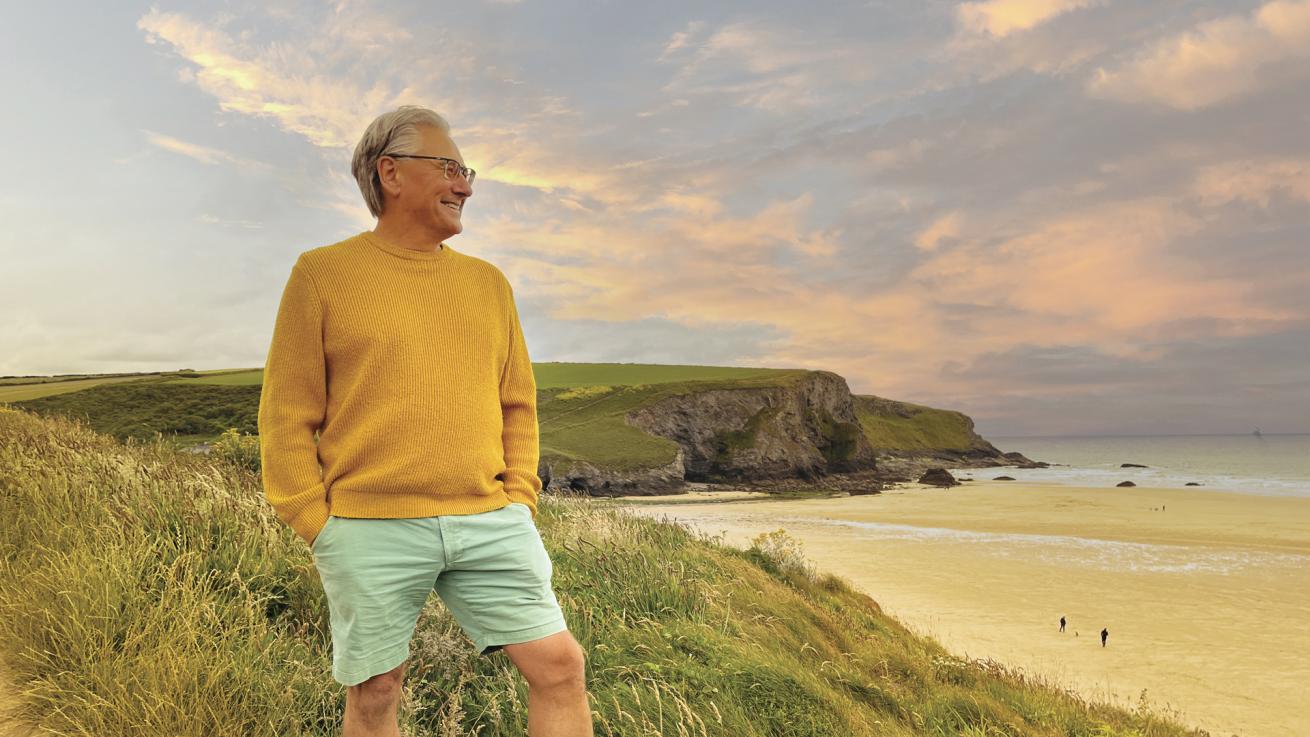
Jen HarlandPortrait of Callum Roberts.
Callum Roberts
Year Dive Certified: 1981
Dive Certification Level: PADI Divemaster
Expertise: Marine conservation and education
Social Media:-
X: @ProfCallum
Bluesky: @profcallum.bsky.social
Instagram: @profcallumr
As a scientist, educator, and diver, Callum Roberts has watched the state of our oceans change throughout his lifetime, even writing the book Reef Life: An Underwater Memoir about this shift. His decades-long career has focused on translating science into action and training the next generation to do the same.
Q: Tell us about your research on threats to marine ecosystems and finding the means to protect them.
A: As a young scientist, I spent hours watching the lives of fish to understand how coral reefs support so many more species than other habitats. I began to see how human activities like coastal development, tourism and pollution were damaging marine life. My career took a decisive turn when, in 1990, I started research on how marine protected areas (MPAs) work. In the space of a couple of years of intensive fish counting in Belize, Saba and Egypt, I discovered that fishing has profound impacts on marine life, but when you protect it well, the sea has an amazing ability to regenerate.
My biggest shock has been to see the world’s coral reefs undergo such rapid degradation and loss as a result of human-driven climate change, pollution and disease epidemics. Coral reefs have thrived and endured for hundreds of millions of years. If you had told me when I was 20 that in the space of my career, the ecosystem I loved and cherished would begin to fall apart in front of my eyes, I would not have believed you. I have written a book about it (Reef Life: An Underwater Memoir), and spend more and more time hunting for ways to keep corals and reefs in business while we figure out ways to fix climate change.
"WHEN YOU PROTECT IT WELL, THE SEA HAS AN AMAZING ABILITY TO REGENERATE."
Q: What is it like to play a hand in helping educate future generations about marine ecosystems?
A: My marine scientist wife, Julie Hawkins, and I started a university master’s program in marine environmental management in 2008. We have educated over 400 students about ocean life, how people affect it and how to look after it better. It has been one of my greatest pleasures to see these students embark on their own careers, making a difference for life in the sea.
Q: What’s been the most satisfying moment in your career?
A: In 2010, the world’s first network of MPAs on the high seas, beyond the limits of any nation’s waters, was created in the middle of the North Atlantic. I led a team of researchers and students to build the scientific case for the network, draw MPA boundaries and recommend how they would be managed. The initial network of six protected areas covered over 110,000 square miles of ocean, but this has since been more than tripled.
Q: Where did your passion for scuba diving and ocean conservation really begin?
A: I grew up on the remote north Scottish coast and dreamed of becoming an explorer. Having been enraptured by Jacques Cousteau’s underwater adventures, I realized the sea was the last great frontier for exploration on Earth.
There was no scuba diving club locally, so I had to wait to learn to dive, which I did as soon as I left to study biology at York University in England. I couldn’t believe my luck, a year later, when I was chosen to join an expedition to describe and map coral reefs of Saudi Arabia. It was my first ever trip overseas, and on stepping into the sea and being surrounded by a blizzard of fish amid the coral forests, I fell headlong and irrevocably in love with coral reefs.
Related Reading: Fighting to Save the Caribbean's Coral Reefs
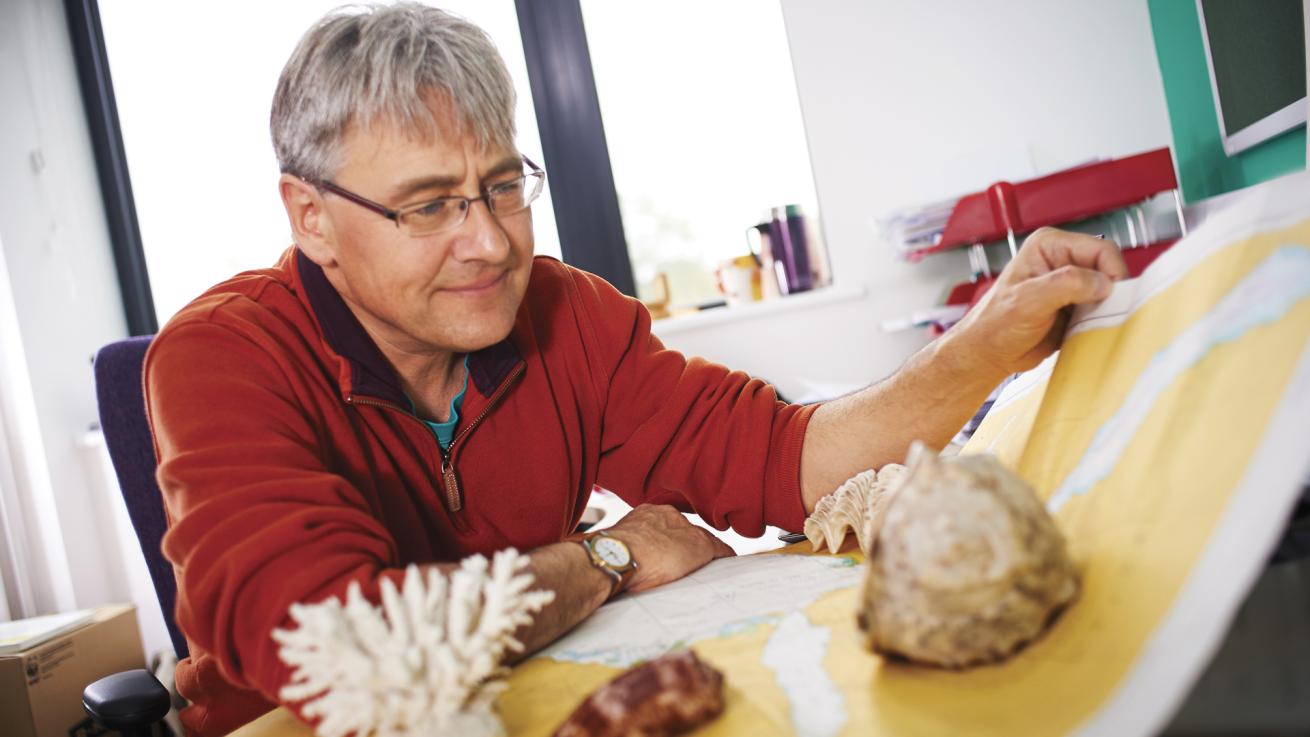
JOHN HOULIHANCallum Roberts has spent more than 30 years researching MPAs and coral reef resilience.
Q: What wisdom would you like to share with readers about diving, ocean conservation, your personal projects within conservation, and your work as an author?
A: The sea has many problems that need urgent attention, and it is easy to become despondent about the slow pace of progress. One of the benefits of age is that your perspective grows longer.
When I began work on marine protected areas, there were hardly any good ones, and few people paid them much attention. Over the decades since, that has changed immeasurably. Protected areas are proliferating everywhere, and we know how to make them really effective and what makes them fail.
Q: What do you view as the greatest challenges in marine conservation today? How are these challenges reflected in your own work?
A: Probably the greatest challenge is how to translate science into action. We know a great deal about the problems ocean life faces, be they from climate change, overfishing, coastal development or pollution.
We also have a pretty good idea what we need to do about them. Fisheries management is not rocket science, for example. The golden rules are well known—don’t take too many fish, leave enough big mature breeders behind, make sure they have enough to eat, and don’t trash their habitats.
Fixing problems requires persuading people to change what they are doing. That piece needs a whole lot more work!
Q: What's been your most satisfying moment?
A: There have been two real standouts in my life. The first was when, in 2010, the world’s first network of marine protected areas on the high seas, beyond the limits of any nation’s waters, was created in the middle of the North Atlantic. I led a team of researchers and students to build the scientific case for the network, draw protected area boundaries and recommend how they would be managed. The initial network of six protected areas covered over 110,000 square miles of ocean, but this has since been added to, more than tripling the coverage.
The second big standout has been doing the science to underpin the new global conservation target to protect 30 percent of the sea by 2030. In the late 1990s, I began to research how much of the sea we should protect. After a couple of years gathering evidence and building the arguments, I had my answer: We need to protect at least 20 to 30 percent of the sea to achieve basic protection for marine life.
This was far greater than the 1 percent of the sea that had been protected up to that time, and much more ambitious than levels of up to 10 percent then being discussed. I kept at it, constantly updating and presenting research findings at successive global conservation meetings, and eventually the United Nations, to build support.
As my team added more evidence, the science coalesced around the higher figure of 30 percent. A call for 30x30 was embraced by conservation organizations and governments and took on a life of its own, growing to include terrestrial ecosystems as well as marine. This eventually led to the global adoption of the target in 2022 at the Conference of the Parties to the Convention on Biological Diversity in Canada. It’s a wonderful feeling to see my scientific research results become embedded in such a massive global conservation action!
Related Reading: Conservationist Erika Lopez Named July Sea Hero
Q: Who are your sea heroes?
A: I’ve been lucky to meet and work with many sea heroes over the years. But I want to give two special mentions. The Maldives is an island nation built of coral in the middle of the Indian Ocean. Its former president, Mohamed Nasheed, was the first democratic leader of the country, and in 2009, ahead of the United Nations Climate Change Conference, he brought to global attention the Maldives’ peril in the face of coral loss and rapid sea level rise.
President Nasheed has faced misfortune himself, having been jailed after a coup, returned to power afterward through popular vote, and survived a recent assassination attempt. Yet he has dedicated himself to saving the country’s coral, founding the Maldives Coral Institute, whose mission is to undertake research to give corals and the people who depend on them a better outlook. That is probably the hardest mission that this battle-hardened president has taken on.
My second ocean hero is Stephen Catlin who has in his long career founded not one but two multibillion-dollar insurance companies, Catlin and Convex. He is a long-standing supporter and advocate for ocean science in the service of care of the planet.
In 2009, he supported his first science project, the Catlin Arctic Survey, which sent explorers and scientists onto the Arctic ice to measure its thickness. The survey proved that Arctic ice was thinning from beneath due to ocean warming. His second project was the Catlin Seaview Survey, a global study of the condition of coral reefs, led by Australian scientist Ove Hoegh-Guldberg.
Over four years the study generated millions of photographs of reefs, proving that reefs were in deep trouble from global change. Stephen’s third project, the Convex Seascape Survey, which I am very fortunate to lead, is an ongoing investigation of the ocean’s ability to absorb and store carbon, and how some human activities may be putting carbon at risk.
Mud, which is where most of the carbon is stored, is not as obviously charismatic as ice, polar bears and coral, but we are finding it is equally important. Stephen’s support for ocean science and the free sharing of data from the research is a shining example of how corporate philanthropy can benefit society.
Q: Is there anything we did not ask that you would like readers to know? Tell us what's important to you!
A: Sometimes people feel overwhelmed by the scale, severity and number of problems facing our world. But on the flip side, this means there has never been a better time to make a difference. Many problems mean many opportunities for budding environmentalists, whether you make a career of it or are a weekend hobbyist or activist. Future generations will thank us for getting stuck in now with tenacity and determination, regardless of whether we think we can succeed at the outset. So don’t give up, give it a go!
Each Sea Hero featured in Scuba Diving receives a Seiko SRPK01 watch valued at $525. For our December issue, judges select a Sea Hero of the Year, who receives a $5,000 cash award from Seiko to further their work. Nominate a sea hero at scubadiving.com/seaheroes.

